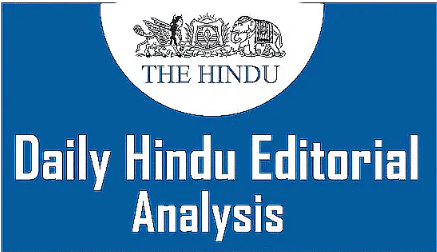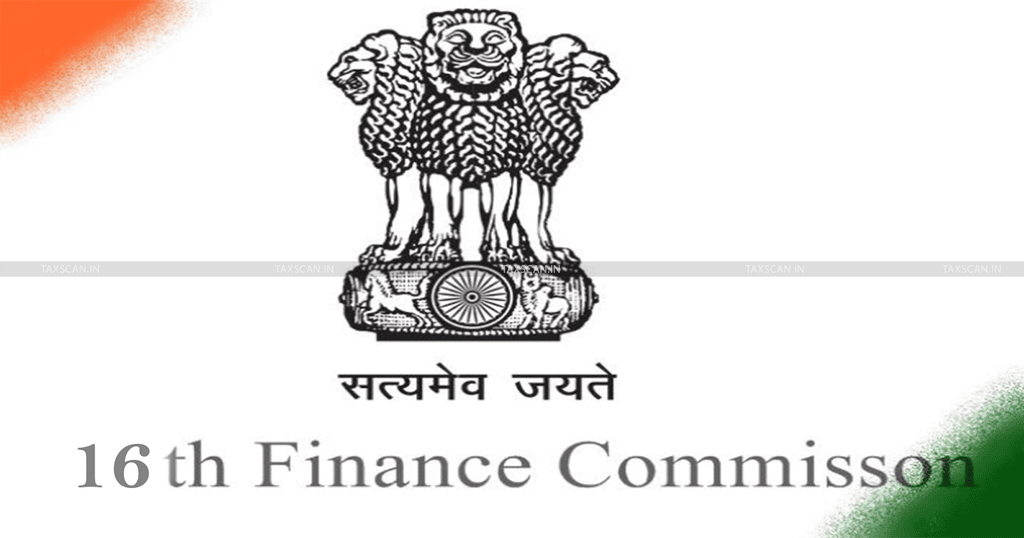UPSC Exam > UPSC Notes > Current Affairs & Hindu Analysis: Daily, Weekly & Monthly > The Hindu Editorial Analysis- 6th December 2024
The Hindu Editorial Analysis- 6th December 2024 | Current Affairs & Hindu Analysis: Daily, Weekly & Monthly - UPSC PDF Download

States and the Challenge Before the Finance Commission
Why in News?
The Government of Tamil Nadu recently hosted the Sixteenth Finance Commission, which was chaired by Arvind Panagariya. With its distinguished experts from various fields, the Commission is uniquely positioned to address the critical fiscal challenges facing India and rectifying the skewness in the relationship between the States and the Union.
- The 16th Finance Commission was established under Article 280 of the Indian Constitution.
- It acts as a constitutional authority to enhance India's financial framework.
- The main responsibility of the commission is to recommend how tax revenues should be shared between the Central Government and the state governments.
- Additionally, it also suggests how these revenues should be distributed among different states.
- The commission aims to provide a fair distribution of resources, reflecting the current economic situation and the development needs of the country.
- The implementation of the recommendations from the 16th Finance Commission will begin in the fiscal year 2026-27.
- The commission is expected to be formed by the end of 2024.
About 16th Finance Commission

- The Finance Commission of India is an official group that is set up every five years.
- Its main job is to provide advice to the President on how to share money between the Union government and the States, as well as among the States themselves.
- The upcoming 16th Finance Commission will be crucial in shaping financial policies during a time when the country's social and economic conditions are changing.
- The commission's role is especially important because of new challenges arising from urbanization, climate change, and economic disruptions.
- It will evaluate the financial needs of both the Union and the States to promote balanced and inclusive growth across the country.
Structure of the 16th Finance Commission
- The 16th Finance Commission will be led by a chairman and will also have four additional members chosen by the President of India.
- The members are typically specialists with deep knowledge in areas such as public finance, economics, public administration, and governance.
- The chairman is usually a well-experienced economist or a former bureaucrat who has worked with public finance.
- The commission will also have a Secretary and some supporting staff to assist in their detailed evaluations and the creation of recommendations.
- This structure is designed to ensure that the commission has the necessary expertise to handle all the complex financial issues it may face.
Agenda of the 16th Finance Commission
- Revenue Sharing: Reviewing how tax revenues are distributed among different levels of government, both in equal shares and based on needs.
- Fiscal Deficit Management: Suggesting ways to handle the budget shortfalls faced by both the central and state governments.
- Urban Finance: Examining the financial status of city-level governments and proposing ways to ensure they have sustainable funding.
- Climate Financing: Developing funding methods to support efforts in climate resilience and sustainable development.
- Technological Integration: Using technology to enhance tax collection and overall financial management.
Terms of Reference for the 16th Finance Commission
- Terms of Reference (ToR) for the 16th Finance Commission will create a framework and outline the tasks and areas that need assessment.
- Tax Devolution Criteria: Establishing rules for how tax revenues will be shared between the central government and the states.
- Grants-in-aid: Suggestions for financial assistance to states that need additional funding.
- Municipal and Panchayat Funds: Investigating the financial needs of local government bodies and recommending funding solutions.
- Special Financial Needs: Identifying the unique financial requirements of certain states and proposing suitable solutions.
- Public Expenditure Review: Evaluating and suggesting improvements in public spending to ensure better financial responsibility and efficiency.
Financial Sustainability Issues with Urban Areas
- Financial Challenges: Indian cities are facing serious problems with managing their finances due to rapid urban growth, poor infrastructure, and the limited ability of local governments to collect money.
- Limited Revenue: Local governments in urban areas struggle to generate enough income. Their main sources of revenue are property taxes and funds from higher government levels.
- Rising Costs: Cities spend a lot of money on building and maintaining infrastructure, as well as providing public services, which adds pressure to their budgets.
- Debt Issues: Many cities find it hard to manage their debts because they do not have strong financial management skills.
- Poor Service Delivery: Inefficiencies in providing services affect the ability to recover costs for utilities and other civic services, which in turn impacts the financial health of local governments.
Measures to be Taken for Better Urban Finance
- Improving Revenue Sources: Focus on enhancing property tax systems, increasing service fees, and creating new revenue options like congestion charges and green taxes.
- Public-Private Partnerships: Promote partnerships between the public and private sectors for developing infrastructure, leveraging private investments and expertise.
- Building Capacity: Implement training programs for local government bodies to improve their financial management and governance skills.
- Incentives through Grants: Provide performance-based incentives in the form of grants to encourage urban local bodies to use resources effectively.
- Debt Management Strategies: Establish robust guidelines for managing debt to ensure responsible borrowing and maintain fiscal health.
- Embracing Technology: Adopt technology to enhance revenue collection processes and improve service delivery, making them more efficient and transparent.
Conclusion
- The 16th Finance Commission is at an important point where its decisions will greatly impact fiscal federalism and the economic growth of India.
- Its main goal is to achieve a fair distribution of resources among different regions.
- Another focus is on managing the fiscal deficit effectively.
- The commission will also address the complex issues involved in funding cities.
- The work of the commission is essential for creating a stable financial environment in the country.
- If the commission's recommendations are put into action successfully, they will help improve the financial ties between the central and state governments.
- This will lead to better financial health for urban local bodies.
- Ultimately, these efforts will contribute to strong and sustainable urban development.
The document The Hindu Editorial Analysis- 6th December 2024 | Current Affairs & Hindu Analysis: Daily, Weekly & Monthly - UPSC is a part of the UPSC Course Current Affairs & Hindu Analysis: Daily, Weekly & Monthly.
All you need of UPSC at this link: UPSC
|
38 videos|5288 docs|1117 tests
|
FAQs on The Hindu Editorial Analysis- 6th December 2024 - Current Affairs & Hindu Analysis: Daily, Weekly & Monthly - UPSC
| 1. What is the role of the Finance Commission in India? |  |
Ans. The Finance Commission is a constitutional body in India that is responsible for determining the distribution of tax revenues between the central government and the states. It also advises on the principles governing grants-in-aid to states and makes recommendations to ensure fiscal stability and equitable distribution of resources among different regions.
| 2. What challenges do states face in relation to the Finance Commission's recommendations? |  |
Ans. States face several challenges, including disparities in revenue generation, differing fiscal capacities, and the need for tailored fiscal support based on their unique socio-economic conditions. Additionally, the implementation of the Finance Commission's recommendations may not always align with the states' priorities or immediate needs, leading to tensions between state and central government expectations.
| 3. How does the Finance Commission address the issue of fiscal federalism in India? |  |
Ans. The Finance Commission plays a crucial role in promoting fiscal federalism by recommending the sharing of tax revenues and providing a framework for financial relations between the center and the states. It aims to enhance the financial autonomy of states while ensuring that they have adequate resources to meet their developmental needs and provide essential services to their citizens.
| 4. What recent developments have influenced the Finance Commission's approach to state funding? |  |
Ans. Recent developments such as the impact of the COVID-19 pandemic, changes in economic growth rates, and the evolving fiscal landscape have influenced the Finance Commission's approach. The need to address urgent health and economic recovery measures has prompted a reevaluation of funding priorities, complicating the traditional formulas used for revenue sharing and grants.
| 5. Why is it important for states to effectively utilize the funds allocated by the Finance Commission? |  |
Ans. Effective utilization of funds allocated by the Finance Commission is crucial for states to achieve their development goals, improve infrastructure, and enhance public services. Proper utilization helps in maximizing the impact of financial assistance, addressing regional inequalities, and fostering sustainable economic growth. It also ensures accountability and builds trust between the states and the central government.
Related Searches





















